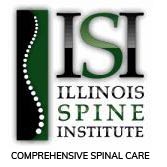What is Genicular Nerve Radiofrequency Ablation?
Genicular nerve radiofrequency ablation is a minimally invasive procedure for the treatment of chronic knee pain from knee osteoarthritis. It is a new and innovative technique that decreases knee pain, improves joint function, and the quality of life in knee arthritis patients.
What are the Indications for Genicular Nerve Radiofrequency Ablation?
Genicular nerve radiofrequency ablation is recommended for the treatment of pain arising from knee osteoarthritis only if conservative treatment failed to provide relief and you are not a candidate for knee surgery.
What are the Contraindications for Genicular Nerve Radiofrequency Ablation?
Genicular nerve radiofrequency ablation is not recommended for:
- Pregnant women
- Unstable knee joint
- Uncontrolled diabetes mellitus
- Presence of a pacemaker
- Chronic knee infection
How to Prepare for Genicular Nerve Radiofrequency Ablation?
Your doctor will review your clinical symptoms and medical history. You should inform your doctor about any previous allergies. You will be given specific instructions to follow before the procedure.
Procedure of Genicular Nerve Radiofrequency Ablation
Genicular nerve radiofrequency ablation involves the following steps:
- You are taken to the procedure room.
- Your doctor will examine the painful knee joint.
- A local anesthetic is injected around the genicular nerve branches using a needle. This serves as a diagnostic nerve block.
- Your doctor may use imaging tools such as ultrasound or fluoroscopy, to guide the needle.
- After this, your doctor will wait and check if you have ≥50% reduction in pain for a minimum of 24 hours following the injection.
- If yes, then you are a candidate for genicular nerve ablation.
- For genicular nerve ablation, you will lie in the supine position (on your back) with your knee bent at an angle of 30°.
- The knee joint and the surrounding area is cleaned with an antiseptic solution to prevent infection.
- Under imaging guidance, one or two thin tubes called cannulas are inserted through a small incision the skin into your knee joint.
- Through the cannula, numbing medication is injected into the genicular nerves to minimize the pain.
- Then, a radiofrequency electrode is placed through the cannulas into your knee joint.
- High-frequency electrical currents are transmitted for a specific time via the electrode to heat the targeted genicular nerves. This damages the nerves that transmit pain signals to your brain.
- After ablation, the cannulas are removed and a bandage is applied.
Post-Procedural Care for Genicular Nerve Radiofrequency Ablation
Your doctor will give you specific instructions on how to care for yourself at home before discharge. These include:
- Keep the incision site clean and dry.
- You may be advised to apply ice at the site for comfort.
- You should perform simple activities like walking and gentle stretching to keep your joints engaged and to regain range of motion. This also helps with a faster recovery.
- Avoid excessive weight-bearing activities for 24-48 hours after the procedure.
What are the Benefits/Advantages of Genicular Nerve Radiofrequency Ablation?
Genicular nerve radiofrequency ablation offers the following benefits and advantages:
- Safer alternative compared to surgery
- Does not require general anesthesia so side effects are reduced
- Provides pain relief for a minimum of 3-4 months; if required, the procedure can be repeated.
- Improves joint function
- Minimizes the need for oral pain medications
What are the Risks and Complications of Genicular Nerve Radiofrequency Ablation?
Genicular nerve radiofrequency ablation may have the following risks and complications such as:
- Difficulty locating the genicular nerves or incorrect placement of the electrode
- Injury to surrounding tissues
- Rarely, skin burns

